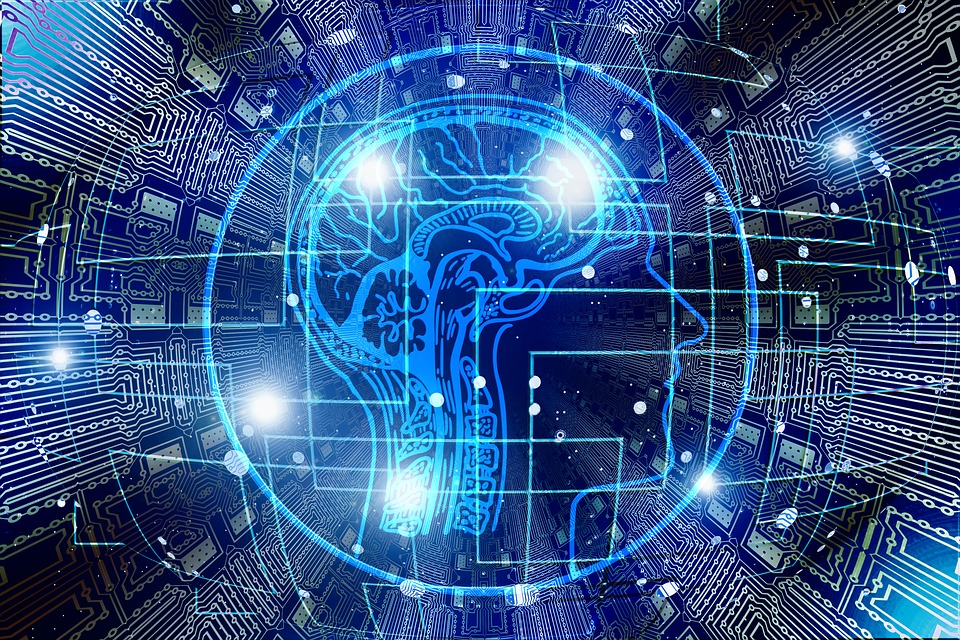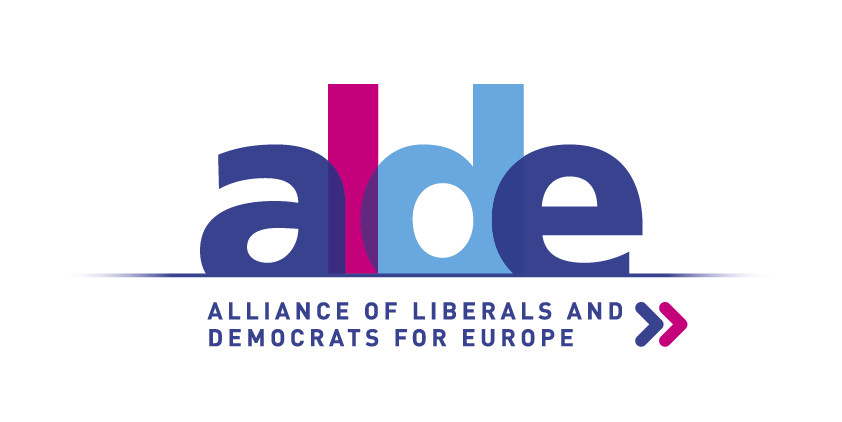
07 May Los Derechos Humanos en el ámbito de la Inteligencia Artificial
El 20 de febrero de 2019 participé en el evento NeuroTech and AI: Do we need Human Rights?, organizado por la Fundación BBVA, en los que tuve el honor de compartir cartel con, entre otros, los científicos Rafael Yuste y Blaise Aguera. Éste es el texto en el que basé mi intervención, tanto en español como en inglés:

Rafael Yuste, Beatriz Becerra y Blaise Aguera
Los Derechos Humanos son el único contrato que nos une a todas las personas, sea cual sea nuestro sexo, raza, edad, nacionalidad o cualquier otro factor. Funcionan como aspiración pero también como marco. Nos sirven para no perder el foco en la actualidad, en las complejidades sociales, en la globalización económica y, desde luego, en la innovación tecnológica.
Puede que, como suele decirse, estemos en medio de una enorme revolución y a las puertas de una gran transformación. Tal vez, como sugieren algunos, nuestras vidas sean muy distintas dentro de unos pocos años. Quizás se abran inmensas oportunidades o se ciernan sobre nosotros amenazas inéditas. Como cargo público, como vicepresidenta de la subcomisión de Derechos Humanos del Parlamento Europeo, no es mi papel entrar en estos extremos. En cambio, tengo muy claro que sea cual sea la dirección y el alcance del cambio tecnológico habrá que valorarlo desde un punto de vista ético y humanístico. Ninguna innovación es buena o mala en sí misma. Hay que observarla a la luz de los Derechos Humanos.
Por lo tanto, el marco de este evento es pertinente e incluso diría que urgente. Los poderes públicos suelen actuar por la presión social. Cuando algo preocupa de verdad a los ciudadanos, entonces se legisla y se crean mecanismos para reducir la incertidumbre y el temor. Tal vez sea triste, pero es así. Pocas veces los políticos van por delante. Por este motivo, es importante que los ciudadanos tomen conciencia de los riesgos que el desarrollo de la Inteligencia Artificial y el Aprendizaje Automático pueden comportar para sus derechos y libertades. Y es importante que esto se haga sin caer en el alarmismo. Se trata de concienciar, no de asustar.
Tengo que decir que esta cuestión no es prioritaria en el Parlamento Europeo. No se le ha dado entidad propia, aunque la semana pasada, precisamente, se votó un informe sobre una política industrial global europea en materia de inteligencia artificial y robótica que incluía algunas consideraciones generales sobre Derechos Humanos. Advertía sobre la posibilidad de ataques a gran escala contra la sociedad de la información y campañas de desinformación; pedía medidas para evitar que se usara la IA para inducir percepciones erróneas de la realidad; reclamaba controles para evitar la manipulación de la IA; alertaba contra la posibilidad de clasificar a los ciudadanos para penalizarlos socialmente; y subrayaba el peligro de sistemas como el de “crédito social” que ya ha instaurado el gobierno chino y que lleva a formas de control social incompatibles con la democracia liberal.
Es algo, para empezar, pero vamos tarde. Ahora que ya estamos virtualmente en campaña electoral, podremos comprobar cuáles son los asuntos sobre los que discuten los partidos políticos, aquellos con los que intentan seducir a los votantes. Podemos dar por seguro que la relación entre Derechos Humanos e Inteligencia Artificial no estará entre ellos. Por dos motivos: uno es que no serviría para chocar y marcar diferencias con los rivales; y el otro, más importante, es que los partidos no están prestando atención suficiente a este asunto y no lo consideran entre sus prioridades.
A los que no somos expertos nos cuesta imaginar la forma que tomará el progreso tecnológico en los próximos años. Leyendo sobre el asunto, tengo la impresión de que incluso les resulta difícil a los que sí son expertos. Nuestra imaginación enseguida se desliza hacia las películas de ciencia ficción en las que las máquinas toman el control, y me sorprende descubrir que es algo que realmente se está debatiendo. ¿Podría una superinteligencia artificial formular sus propios objetivos ignorando los de los seres humanos? Creo que si hoy un político entrara en este debate, muchos se reirían de él, pero creo que tenemos la obligación, al menos de comprender el debate y reflexionar sobre él.
En cambio, de una forma más cercana, nos preocupan mucho las aplicaciones de la IA y el AA para fines militares. Hace mucho tiempo que la innovación armamentística puebla nuestras pesadillas. Antes que Matrix fue Teléfono rojo, volamos hacia Moscú. ¿Cuál es la diferencia, entonces?
En 1983, el oficial soviético Stanislav Petrov estaba al mando cuando los sistemas informáticos detectaron que un ataque nuclear contra la URSS. Según el protocolo, debía informar del ataque a sus superiores. Pero Petrov intuyó que algo fallaba y no informó. En efecto, era una falsa alarma. En aquella ocasión, el factor humano evitó el desastre. Sé que en otras ocasiones puede pasar lo contrario, soy consciente de que las máquinas pueden evitar caer en los sesgos cognitivos de los humanos. Pero hay algo muy importante en esta anécdota: la responsabilidad. Petrov se hizo responsable, para bien o para mal.
Existe un peligro real de que los Estados desarrollen sistemas y algoritmos que tomen las decisiones por sí mismos precisamente para evitar los sesgos humanos. Y el gravísimo problema, en ese caso, es que desaparecerá la responsabilidad personal. ¿A quién pediremos cuentas? ¿Cómo podrían las instituciones y los ciudadanos controlar que se están haciendo las cosas bien cuando nadie es responsable?
En cierta medida, esto ya está ocurriendo. La Declaración de Toronto, firmada por la Fundación Wikipedia, Human Rights Watch, Access Now y Amnistía Internacional, ha puesto el foco, precisamente, en los sistemas de Aprendizaje Automático e Inteligencia Artificial que reproducen asimetrías y discriminaciones ya existentes, que penalizan a minorías y terminan perpetuando las diferencias y apuntalando los prejuicios. Puede suceder en procesos de selección o en decisiones educativas, por poner sólo dos ejemplos. Y se podría argumentar que es un problema puramente técnico, pero recordemos que en parte, el Aprendizaje Automático es una caja negra; y que, en cualquier caso, volvemos a tener el problema de la responsabilidad. Se la estamos cediendo a máquinas que no se van a presentar a elecciones y a las que no se puede enjuiciar.
¿Qué podemos hacer desde las instituciones europeas para prevenir cualquier vulneración de derechos y libertades? Lo primero que hay que decir es que somos capaces de hacerlo. Hay un ámbito muy relacionado con los algoritmos y las nuevas tecnologías en el que Europa ha actuado con decisión y liderazgo: el de la privacidad. No olvidemos que estamos ante uno de los Derechos Humanos, y que en mayo del año pasado entró en vigor el Reglamento General de Protección de Datos, una regulación europea de vanguardia. Lo que ocurre es que esto ha sido así porque la preocupación de los ciudadanos por la protección de sus datos era ya muy elevada.
La Unión Europea debe actuar con celeridad. Es necesario, primero, investigar y debatir. Debemos hacerlo con transparencia e implicando a la sociedad civil. Debemos buscar un consenso amplio, un suelo común, igual que lo hemos hecho en el caso de la privacidad. Y, por supuesto, debemos legislar para garantizar que existan controles, supervisión y, sobre todo, rendición de cuentas. Si alguien es responsable de un desarrollo de Inteligencia Artificial potencialmente peligroso para los Derechos Humanos, es mucho más probable que extreme las precauciones y actúe con transparencia.
Sin embargo, no creo que el marco europeo sea suficiente. Todo lo que implica a las nuevas tecnologías el global. Del mismo modo, los Derechos Humanos son universales. Recordemos que China ha puesto en marcha ya su programa de crédito social, doscientos millones de cámaras con tecnología de reconocimiento facial que dan o quitan derechos. Recordemos que Rusia está embarcada en una guerra híbrida de la que forma parte tecnología destinada a la desinformación, que a su vez es parte de una estrategia para debilitar al oponente (en este caso, las democracias occidentales). Recordemos que las principales empresas de IA están en Estados Unidos. Por tanto, creo que la Unión Europea debe impulsar un acuerdo global en el marco de las Naciones Unidas para garantizar que los desarrollos tecnológicas no vulneren los Derechos Humanos.
Puede que no parezca el mejor momento para decir esto, cuando el orden multilateral está tan seriamente cuestionado desde Washington e incluso desde algunas capitales europeas. Pero precisamente por esto me parece que hay que plantearlo. Compartimos oportunidades y amenazas, compartimos una misma naturaleza humana. La respuesta será global o será insuficiente.
Muchas gracias.
English version
The Universal Declaration of Human Rights is the only contract that binds all of us, regardless of our sex, race, age, nationality or any other factor. Human Rights are an aspiration but also a frame. They help us not to lose focus in the present, in social complexities, in economic globalization and, of course, in technological innovation.
Maybe, as they say, we are in the midst of a huge revolution and at the door of a great transformation. Maybe, as some suggest, our lives will be very different in a few years. Perhaps immense opportunities are opened or new threats are looming over us. As public official, as vice chair of the European Parliament subcommittee on Human Rights, it is not my role to go that far. But I am very clear on something: whatever the direction and scope of technological change, it will have to be evaluated from an ethical and humanistic point of view. No innovation is good or bad in itself. It must be observed in the light of Human Rights.
Therefore, the approach of this event is certainly relevant and accurate. And I would add: it is urgent. Public authorities usually act because of social pressure. When something really worries citizens, then legislation and mechanisms are created, in order to reduce uncertainty and fear. Maybe it is sad, but this is the way it is. Few times politicians go in advance. For this reason, it is important that citizens become aware of the risks that the development of Artificial Intelligence and Machine Learning can entail for their rights and freedoms. And it is important that this is done without falling into alarmism. It is about raising awareness, not about scaring people.
I have to say that this issue is not a priority in the European Parliament. Nevertheless, we have just adopted a report on a European global industrial policy on artificial intelligence and robotics, that includes some general considerations on AI and Fundamental Rights. I would like to highlight that, with this report, we, the representatives of European citizens, are:
warning about the possibility of large-scale attacks against the information society and disinformation campaigns
asking for measures to prevent AI being used to induce misperceptions of reality
demanding controls to avoid manipulation of the AI
alerting against the possibility of classifying citizens to penalize them socially
and
stressing the danger of systems such as the «social credit» one, already adopted by the Chinese government, that leads to forms of social control incompatible with liberal democracy.
It is something, to begin with, but let´s say it clearly: we are late. We can take for granted that the relationship between Human Rights and Artificial Intelligence will not be among the issues that political parties will be explaining and proposing as a priority in the upcoming electoral campaigns.
It is hard for those of us who are not experts to imagine how the technological progress will look like in the coming years. Reading about the matter, I have the impression that even those who are experts find it difficult. Our imagination quickly slides into the science fiction movies in which the machines take control, and I am surprised to discover that it is something that is really being debated. Could an artificial superintelligence formulate its own objectives while ignoring those of human beings? I think that if today a politician enters into this debate, many would laugh at him. But I think we have a responsibility and a mandate to understand and deeply think about it.
On the other hand, we are very concerned about the applications of AI and MachineLearning for military purposes. For a long time, weapon innovation has been part of our nightmares. Before Matrix was Red Telephone, we flew to Moscow. What is the difference then now?
In 1983, the Soviet officer Stanislav Petrov was in charge when the computer systems detected a nuclear attack against the USSR. According to the protocol, he had to report the attack to his superiors. However, Petrov felt that something was wrong and did not report. In effect, it was a false alarm. On that occasion, the human factor avoided disaster. I know that on other occasions the opposite may happen: I am aware that machines can avoid falling into the cognitive biases of humans. However, there is something very important in this anecdote: responsibility. Petrov was responsible, for better or for worse.
There is a real danger that States will develop systems and algorithms that make decisions for themselves precisely to avoid human biases. And the very serious problem, in that case, is that personal responsibility will vanish. Who would we held accountable? How could institutions and citizens control that things are being done well when no one is responsible?
To a certain extent, this is already happening. The Toronto Declaration, signed by the Wikipedia Foundation, Human Rights Watch, Access Now and Amnesty International, is focused precisely on the Automatic Learning and Artificial Intelligence systems that reproduce asymmetries and existing discriminations that penalize minorities, so they end up perpetuating differences and propping up prejudices. It can happen in selection processes or in educational decisions, to put just two examples. And one could argue that it is a purely technical problem, but remember that in part, the Machine Learning is a black box; and that, in any case, we have the problem of responsibility again. We are giving it to machines that are not going to stand for elections and can not be prosecuted.
What can we do from the European institutions to prevent any violation of rights and freedoms? The first thing we have to say is that we are capable of doing it. There is a field very related to algorithms and new technologies in which Europe has acted with decision and leadership: the one of privacy. Let us not forget that this is a field of Fundamental Rights, and that in May last year came into force the General Regulation of Data Protection, a cutting-edge European regulation. This has been possible because the citizens’ concern for their data protection was already very high.
The European Union must act with celerity. It is necessary, first, to investigate and debate. We must do so with transparency and involving civil society. We must seek a broad consensus, a common ground, just as we have done in the case of privacy. And, of course, we must legislate to guarantee that there are controls, supervision and, above all, accountability. This way, if someone is responsible for a development of Artificial Intelligence potentially dangerous for Fundamental and/or Human Rights, it will be much more likely that this person extremes precautions and acts with transparency.
However, I do not think that the European framework is sufficient. Everything that involves new technologies is global. In the same way, Human Rights are universal.
Let’s keep in mind that China has already launched its social credit program: two hundred million cameras with face recognition technology that give or remove rights.
Let’s keep in mind that Russia is embarked on a hybrid war where technology is part intended for disinformation, which in turn is part of a strategy to weaken the opponent (in this case, Western democracies).
Let’s keep in mind that the main AI companies are settled in the United States.
Therefore, I believe that the European Union should promote a global agreement within the framework of the United Nations to guarantee that technological developments do not violate Human Rights.
It may not seem like the best time to say this, when the multilateral order is so seriously questioned from Washington and even from some European capitals. But precisely because of this, it seems to me that we have to raise it. We all share opportunities and threats; we all share the same human nature. Therefore the response will be global or will not be a response.
Thank you.


